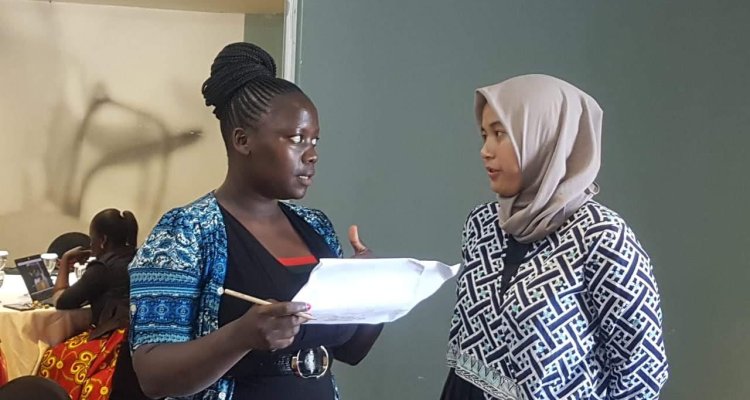
Alumnus testimonial
Arti – Project Manager at HIVOS, Indonesia
Before starting off her master in Development and Rural Innovation, Arti Indallah Tjakranegara finished a bachelor’s in Environmental Engineering. The reason to venture from data and technology into social science was that she often found a discrepancy between people having technology at hand and actually putting it to use. She wanted to find out more about human behaviour and how that drives or hinders development. “The uniqueness of MDR is how the technical and social side are connected in the program. Usually they are treated as two different sides. During the Master Development and Rural innovation you try to approach wicked problems from more than one angle.”
The uniqueness of MDR is how the technical and social side are connected in the program.
What kind of job did you have after you graduated?
Arti was able to apply what she learned about multidisciplinary already in her internship which she did for the ‘Think, do and be – tank’ in Bali dealing with climate change. Her first job after graduating from the master programme was for SNV Netherlands Development Organisation. There, she was part of the Voice for Change Partnership Program which focuses on capacity building and technical assistance for local civil society organisations. “My role was that of an advisor towards these local civil society organisations, and also providing training, coaching, or trouble shooting on the ground.”
What is your current position and did MDR helped you in your work today?
When her contract ended, she applied for several other organisations in her home country Indonesia and finally landed on the Dutch organisation HIVOS for an Indonesian project. As an MDR graduate, she recognises a difference between her and her colleagues on how they approach problems. While her colleagues mainly argue from a technical point of view, she takes into account the social component as well. Working as an advisor in Indonesia, she sees many topics of the MDR programme come back. “I still have my study materials at hand in my job. I mainly make use of the communication models and frameworks that can help me figure out motivations and barriers for behaviour change in interventions. (…) What I would like to work most on are climate change issues. I think Wageningen is quite strong on environmental topics and many of the conversations in class and study groups are related to climate change. I want to see more of that discussion also in our community in Indonesia.”
How do you look to the future?
While working in the field is aligning with how Arti envisioned her career path, she has gathered some inspiration for a PhD during writing her thesis. The professional grassroots work at HIVOS is what she is passionate about at the moment, but she does not want to rule out starting her PhD in the next five to ten years.